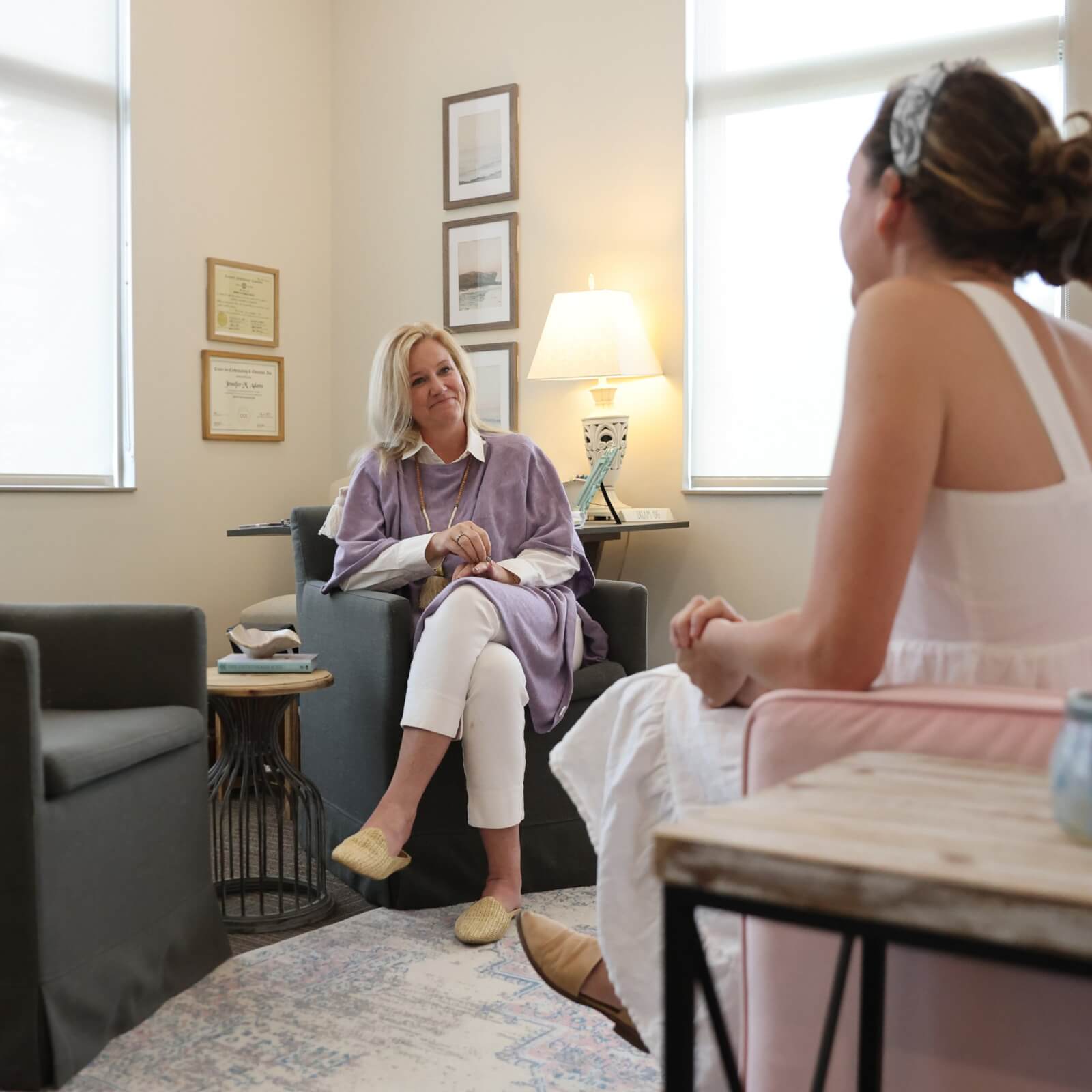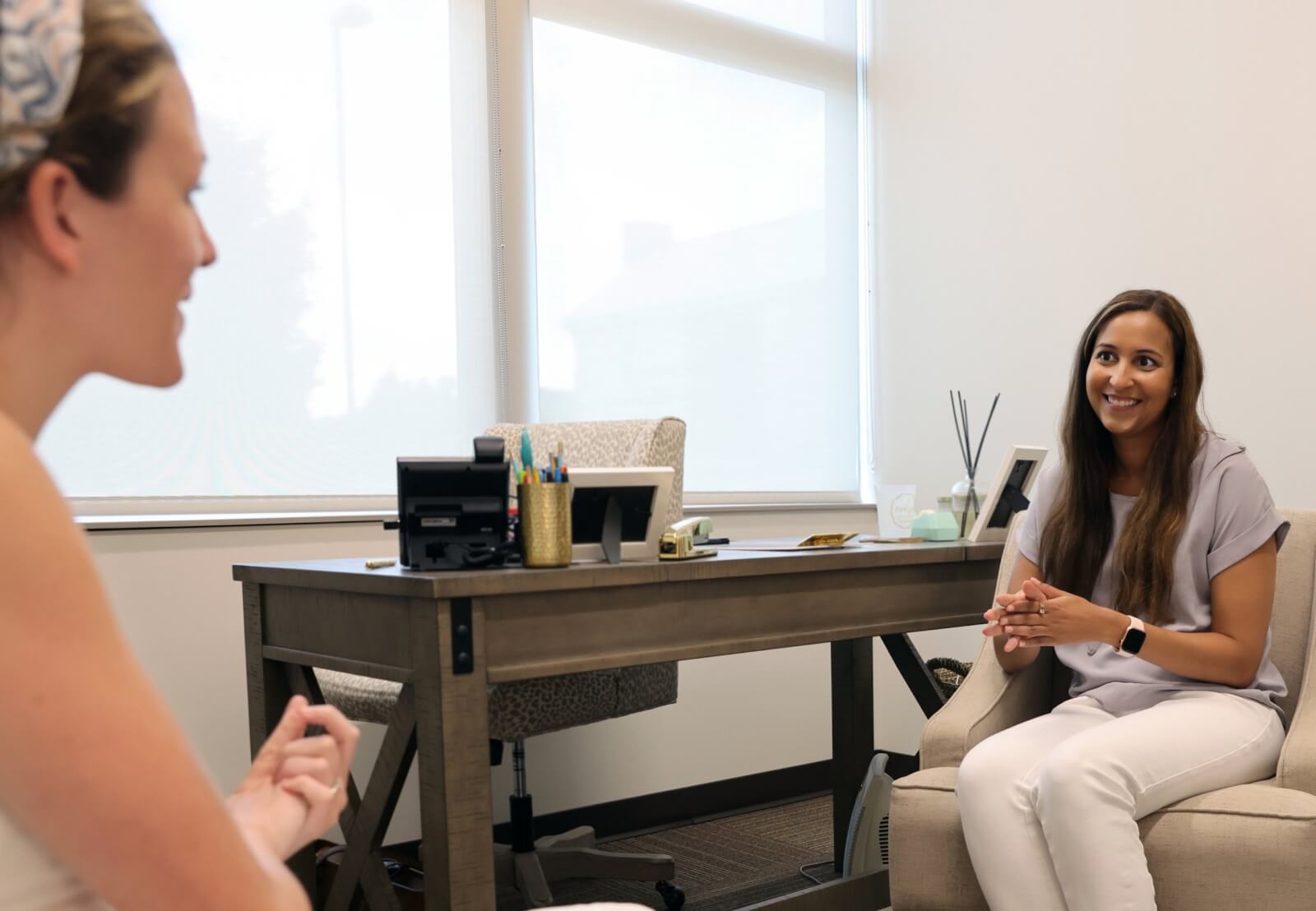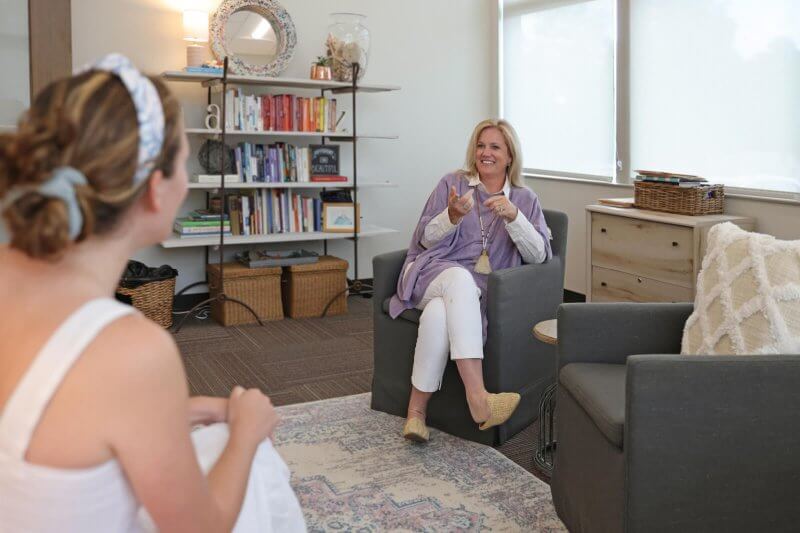sponsored content
Between social media and our ever-rotating news feeds, we’re often overwhelmed with conflicting messages surrounding what wellness should look like — both physically and mentally. While therapy has become a more widely sought-after form of self-care in recent years, for some, there’s still an air of mystery surrounding the process. How do I know it’s time to consider therapy? What’s involved? Where do I even start? We look to Jennifer Adams and Devon Bridgwaters, licensed counselors at Evolve Counseling Associates in Nashville, to answer these commonly asked questions and more.

How do I know it’s time to consider therapy?
The experts at Evolve explain that a common sign that could indicate it’s time to consider therapy is consistent, prolonged feelings that you may not have experienced before. However, it’s important to note that these feelings can extend beyond anxiety and depression. While these are indeed common, signs may also include a change in behavior or feeling like your life looks different than before and you’re unsure of what the future holds.
What are the first steps I should take if I want to start therapy?
Before beginning therapy, Devon says it’s important to reflect on your needs and what you want to gain from the therapy process. “Ask yourself questions like, ‘What do I specifically want to explore in therapy?’, ‘What areas of my life or functioning would I like to improve or change?’, ‘What qualities do I want in a therapist?’, ‘Am I ready to make a time and financial commitment?’, ‘Am I open to challenging myself in a new way?’,” says Devon. “Then, after you have assessed your specific needs and your willingness to grow, you are ready to start the search process for a therapist!”
When you’re ready to begin attending sessions, Jennifer says you can expect your first few meetings to be about building a strong relationship with your therapist. “All the tools and techniques we learn in school can just truly, in my opinion, be thrown out the window if you can’t establish a relationship with the client,” Jennifer tells us. “We have to [build] that rapport. The first few sessions are really about intake and learning more about the way [clients] navigate the world.”

How do I find the right therapist?
The licensed counselors at Evolve Counseling Associates focus on a variety of issues faced by women and girls, including eating disorders, trauma, anxiety, and depression. When it comes to finding a therapist, Jennifer says it’s important to take your time to ensure you find the best match possible. Luckily, Evolve Counseling Associates makes this process easy, offering a direct line for patients to call so they can always speak directly to a therapist rather than a receptionist. “When somebody calls us, even if they call for me and I talk to them and I feel like they’re a better match for somebody else, I’m going to say, ‘Hey, I think you’d be really good with this therapist,’” explains Jennifer. “It’s a very personalized approach where you’re going to call a therapist and talk [to them], or you can call directly and leave a message for all the therapists specifically. There’s not a general line to leave a message.”
What can I expect to happen during a therapy session?
Depending on your therapist’s approach or treatment modality, sessions are structured differently for each patient. However, Jennifer says one thing you can expect to happen during your session is you’re going to do most of the talking. As you talk, your therapist is likely to jump in and ask questions to better understand the situation and dig a little deeper.
Devon adds that most sessions begin with a quick check-in about what has happened since your last meeting, a review of concerns, and an evaluation of progress and challenges. After this overview, you can expect a more general discussion of personal goals, areas of improvement, and moments of challenge. She also notes that sessions typically end with a quick summary of critical points or revelations, recommended practices or reflection options to do in-between sessions, and next steps.

How frequently do I need to go to therapy?
How often someone attends therapy is typically determined through an intake assessment and a collaborative discussion between the therapist and client, and it typically varies with each person. After these steps, Devon says therapists will recommend a frequency of sessions that meets each client’s specific needs. This may be weekly, bi-weekly, or monthly sessions.
In the beginning, Jennifer adds that Evolve Counseling Associates typically recommends three to four weekly sessions to help build rapport and client-therapist relationships. “One of the things we really pride ourselves on is that we understand [therapy] is a big investment financially, emotionally, and timewise — just in all capacities. We’re not going to take advantage of that,” she says. “After those first three or four weeks, we might say, ‘Let’s go every other week now,’ or ‘Let’s go once a month.’ We try to utilize [patients’] time and resources as best we can.”

What are some common misconceptions about therapy?
When it comes to going to therapy, Jennifer tells us that people sometimes forget about its confidentiality component. It’s important to remember therapists are bound ethically and legally to not talk about their sessions, keeping their offices a safe space for clients. “Whoever comes to our office, nobody knows, and we will not confirm or deny who comes into our office. We will never talk about their session outside of the time we are together,” Jennifer explains.
Devon adds that many people believe therapists are going to tell you what to do. Instead, therapists are simply guides who are there to support you in your journey. “As therapists, we are there to walk alongside you while you forge your own path. We are there to support you in the choices you make following adequate exploration,” she tells us. “We are there to challenge inconsistencies, offer alternative avenues of thinking, help you dive deeper into your understanding of yourself, and provide you with skills catered to your needs. We are there to empower you to refine and utilize your strengths to reach your goals and conquer life’s ups and downs.”
Evolve Counseling Associates is currently accepting new patients both online and in-person. They are located at 6740 Charlotte Pike, Suite 201, Nashville, TN 37209. To learn more or schedule an appointment, visit evolvecounselingassociates.com or call (615) 219-9408. All photography by Leila Grossman.



















